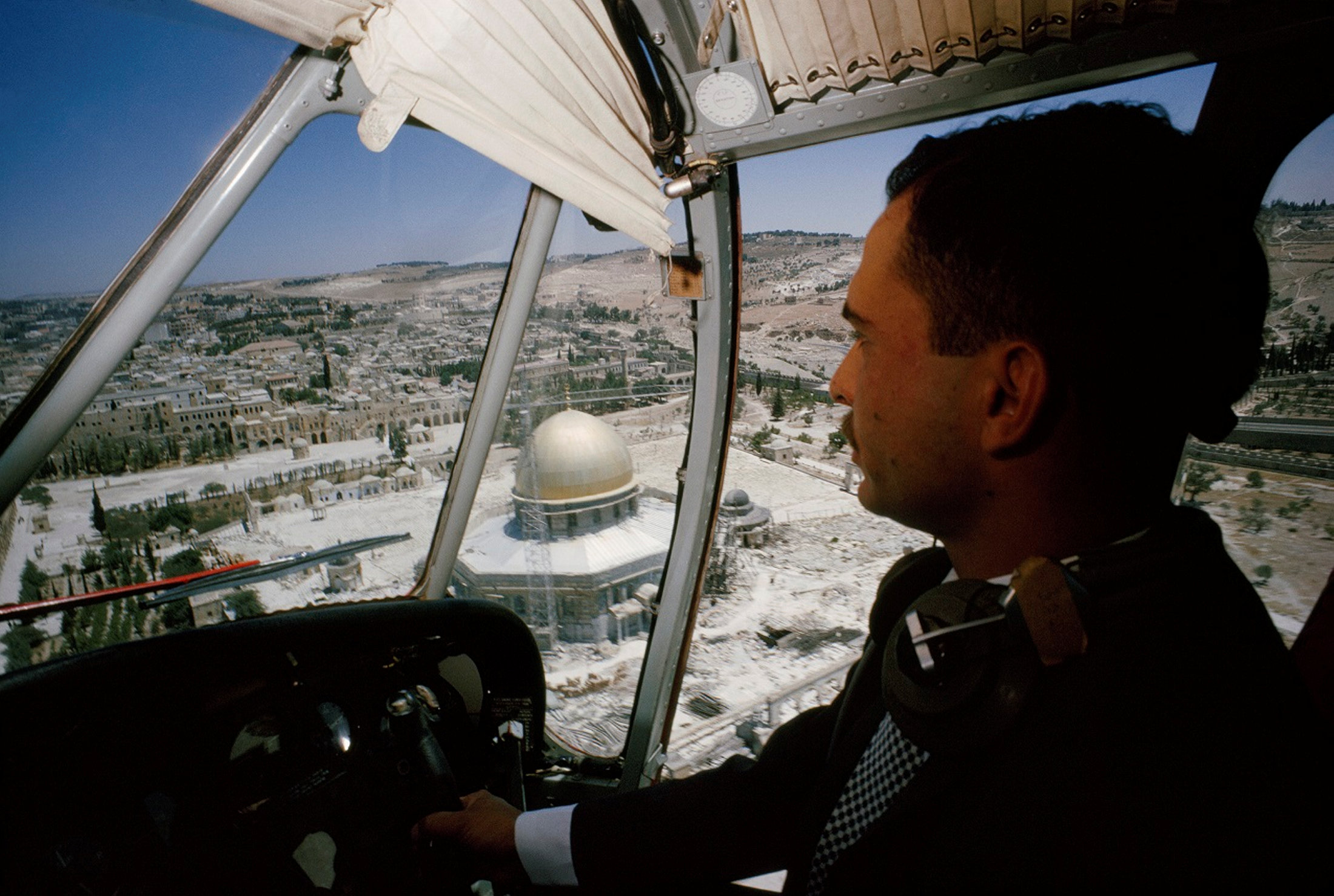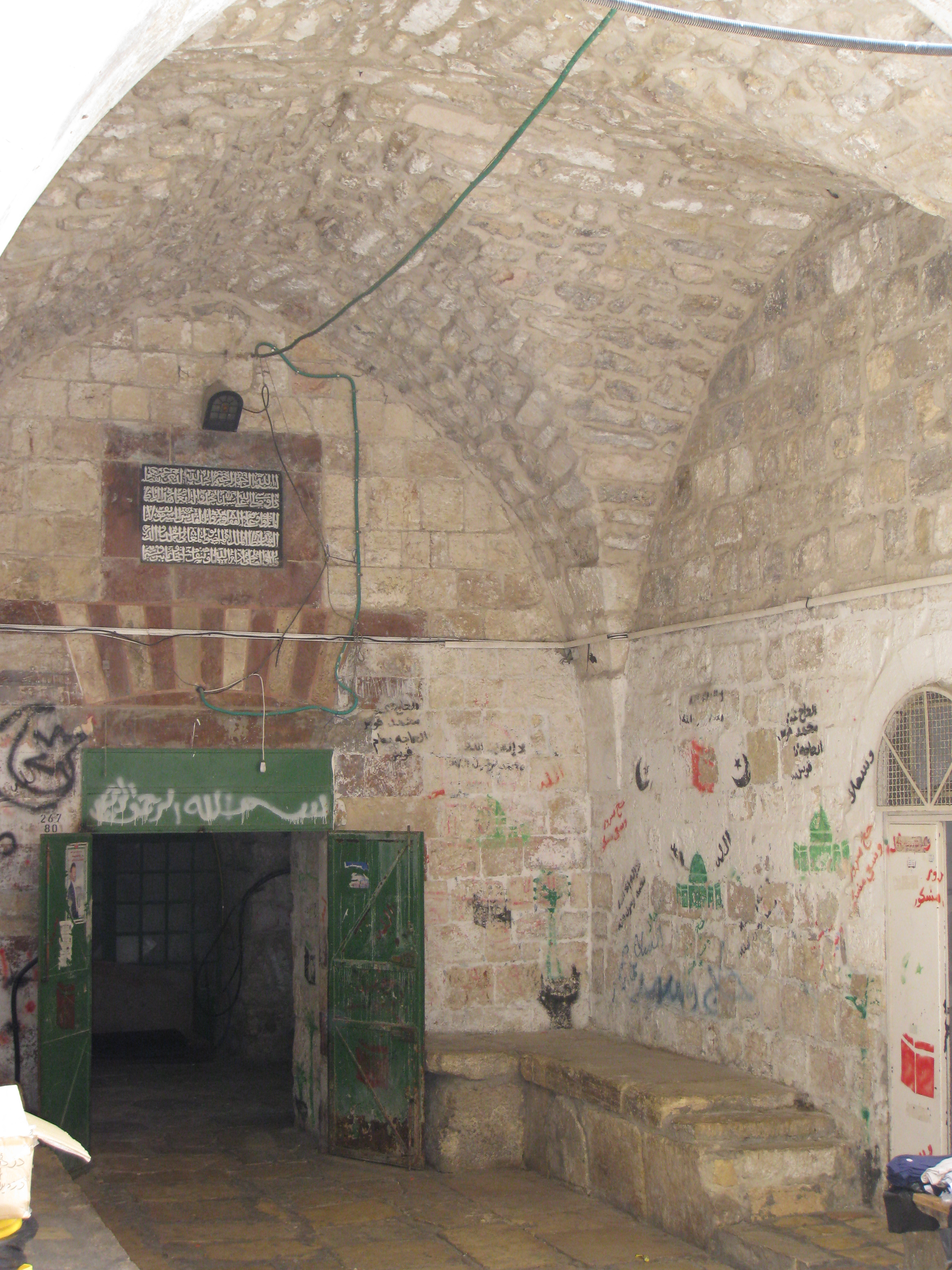|
Council Gate
The Inspector's Gate (or the Council Gate, ) is one of the gates of the al-Aqsa Compound (). It is the second-northernmost gates in the compound's west wall, after the Bani Ghanim Gate. It is north of the Iron Gate. Names It has two current Arabic names, both are in use: * the Inspector's Gate or Superintendant's Gate ( ): named after the Inspector of the Two Noble Sanctuaries, the Hebron] – not to be confused with the Servant of the Two Noble Sanctuaries [of Mecca and Medina]. It was also translated, less precisely, as "Gate of the Watchman". * the Council Gate ( ): named after the Supreme Muslim Council. Its obsolete names: * Michael's Gate ( or ): named after Michael the archangel. * the Gate of ʿAlāʾ ad-Dīn al-Baṣīr: named after a nearby ribat: the Aladdin Ribat, which in turn was named after Emir ʿAlāʾ ad-Dīn al-Baṣīr. * the Prison Gate ( ), when the ribat was converted into a prison. History It was probably built on the same spot as the Umayya ... [...More Info...] [...Related Items...] OR: [Wikipedia] [Google] [Baidu] |
Gates Of Old City Of Jerusalem Palestine (40)
Gates is the plural of gate, a point of entry to a space which is enclosed by walls. It may also refer to: People * Gates (surname), various people with the last name * Gates Brown (1939-2013), American Major League Baseball player * Gates McFadden (born 1949), American actress and choreographer * Gates P. Thruston (1835-1912), American Civil War veteran, lawyer and businessman Places Canada * Gates, British Columbia, Canada, a rural community ** Gates River, a river in British Columbia ** Gates Valley, a valley in British Columbia ** Gates Lake, at the head of the Gates River United States * Gates, Nebraska, an unincorporated community * Gates, New York, a town ** Gates (CDP), New York, census-designated place * Gates, Oregon, a city * Gates, Tennessee, a town * Gates County, North Carolina, United States ** Gates, North Carolina, an unincorporated community in the county * Gates Pass, Arizona, a mountain pass Arts and entertainment * Gates (band), a post rock band from New Jers ... [...More Info...] [...Related Items...] OR: [Wikipedia] [Google] [Baidu] |
Ayyubid Dynasty
The Ayyubid dynasty (), also known as the Ayyubid Sultanate, was the founding dynasty of the medieval Sultan of Egypt, Sultanate of Egypt established by Saladin in 1171, following his abolition of the Fatimid Caliphate, Fatimid Caliphate of Egypt. A Sunni Muslim of Kurds, Kurdish origin, Saladin had originally served the Zengid dynasty, Zengid ruler Nur al-Din Zengi, Nur al-Din, leading the latter's army against the Crusader invasions of Egypt, Crusaders in Fatimid Egypt, where he was made vizier (Fatimid Caliphate), vizier. Following Nur al-Din's death, Saladin was proclaimed as the first Sultan of Egypt by the Abbasid Caliphate, and rapidly expanded the new sultanate beyond Lower Egypt, Egypt to encompass most of Syria (region), Syria, in addition to Hijaz, Southern Arabia, Yemen, northern Nubia, Tripolitania and Upper Mesopotamia. Saladin's military campaigns set the general borders and sphere of influence of the sultanate of Egypt for the almost 350 years of its existence. Mos ... [...More Info...] [...Related Items...] OR: [Wikipedia] [Google] [Baidu] |
Sebil (fountain)
A sabil or sebil (; ) is a small kiosk in the Islamic architecture, Islamic architectural tradition where water is freely dispensed to members of the public by an attendant behind a grilled window. The term is sometimes also used to refer to simple unmanned fountains with a tap for drinking water, though other names often exist for such fountains (such as in Turkish). Historically, sabils are structures of both civic and religious importance in Muslim cities, most prominently in the cities of the Ottoman Empire, based in Istanbul, and of the Mamluk Sultanate (Cairo), Mamluk Empire, based in Cairo. They were built at intersection (road), crossroads, in the middle of city squares, and on the outside of mosques and other religious complexes to provide drinking water for travelers and to assist Wudu, ritual ablutions before prayer. Etymology The word ''sabil'' comes from the Semitic root, Arabic verb root ''sabala'' (سبل) meaning "to let fall, drop, to let hang down, to close ... [...More Info...] [...Related Items...] OR: [Wikipedia] [Google] [Baidu] |
Palestinian Academic Society For The Study Of International Affairs
The Palestinian Academic Society for the Study of International Affairs (PASSIA; ) was founded in Jerusalem in March 1987 by Dr. Mahdi Abdul Hadi and a group of Palestinian academics and intellectuals. PASSIA is a member of the Palestinian NGOs Network and claims no affiliation with any government, political party organization. PASSIA deals with the various national, Arab and international aspects of the Palestinian Palestinians () are an Arab ethnonational group native to the Levantine region of Palestine. *: "Palestine was part of the first wave of conquest following Muhammad's death in 632 CE; Jerusalem fell to the Caliph Umar in 638. The indigenous p ... Question through its academic Research Studies Program, dialogue and publication. A major component of PASSIA’s activities is its Roundtable Meetings Program, and with over 100 publications to its credit, many of which include the minutes of these meetings. As part of its Religious Studies Unit PASSIA also holds re ... [...More Info...] [...Related Items...] OR: [Wikipedia] [Google] [Baidu] |
Amman
Amman ( , ; , ) is the capital and the largest city of Jordan, and the country's economic, political, and cultural center. With a population of four million as of 2021, Amman is Jordan's primate city and is the largest city in the Levant region, the fifth-largest city in the Arab world, and the tenth-largest metropolitan area in the Middle East. The earliest evidence of settlement in Amman dates to the 8th millennium BC in 'Ain Ghazal, home to the world's oldest statues of the human form. During the Iron Age, the city was known as ''Rabat Aman'', the capital of the Ammonite Kingdom. In the 3rd century BC, the city was renamed ''Philadelphia'' and became one of the ten Greco-Roman cities of the Decapolis. Later, in the 7th century AD, the Rashidun Caliphate renamed the city Amman. Throughout most of the Islamic era, the city alternated between periods of devastation and periods of relative prosperity. Amman was largely abandoned during the Ottoman period from the 15 ... [...More Info...] [...Related Items...] OR: [Wikipedia] [Google] [Baidu] |
Hashemite Custodianship Of Jerusalem Holy Sites
Hashemite custodianship refers to the Jordanian royal family's role in tending Muslim and Christian holy sites in the city of Jerusalem. The legacy traces back to 1924 when the Supreme Muslim Council, the highest Muslim body in charge of Muslim community affairs in Mandatory Palestine, chose Hussein bin Ali (Sharif of Mecca) as custodian of Al-Aqsa. The custodianship became a Hashemite legacy administered by consecutive Jordanian kings. Jordan controlled East Jerusalem and the West Bank in 1948, and annexed the territories in 1951 until they were lost to Israel during the 1967 Six-Day War. Jordan renounced claims to the territory in 1988, and signed a peace treaty with Israel in 1994, whose ninth article states that Israel commits to "respect the present special role of the Hashemite Kingdom of Jordan in Muslim Holy shrines in Jerusalem" and that "when negotiations on the permanent status will take place, Israel will give high priority to the Jordanian historic role in thes ... [...More Info...] [...Related Items...] OR: [Wikipedia] [Google] [Baidu] |
Afro-Palestinians
Afro-Palestinians are Palestinians of Black African heritage. In the Gaza Strip, around 1% of the population is estimated to be black, with roughly 11,000 Afro-Palestinians residing in Gaza City's Al Jalla’a district prior to October 2023. In Jerusalem, an estimated population between 200-450 reside in a historic African enclave around Bab al-Majlis, in the Muslim Quarter,Jonarah Baker'The African-Palestinians: Muslim Pilgrims Who Never Went Home', The New Arab, 26 Dec. 2014.Ilan Ben Zion''The Old City's African secret'', The Times of Israel 6 April 2014. as well as communities in other areas of Jerusalem such as Beit Hanina and A-Tur. There are also Bedouin populations who have descent lines linking them to people of African origin such as in the West Bank city of Jericho. Notable Afro-Palestinians include former PLO official Fatima Bernawi and PFLP official Ali Jiddah. History Background Historically Palestine was a province under foreign powers. From the Rashidun C ... [...More Info...] [...Related Items...] OR: [Wikipedia] [Google] [Baidu] |
Muslim Quarter (Jerusalem)
The Muslim Quarter (; ) is one of the four sectors of the ancient, walled Old City of Jerusalem. It covers of the northeastern sector of the Old City. The quarter is the largest and most populous of the four quarters and extends from the Lions' Gate in the east, along the northern wall of the Temple Mount in the south, to the Damascus Gate—Western Wall route in the west. The Via Dolorosa starts in this quarter, a path Jesus had to take when he was forced by Roman soldiers, on his way to his crucifixion.Muslim Quarter of the "Old City" section of Jerusalem The population of the Muslim Quarter was reported in 2012 as 22,000. Boundaries The Muslim Quarter of Jerusalem is bordered by the Christian Quarter to the west, the Jewish Quarter (Jerusalem), Jewish Quarter ...[...More Info...] [...Related Items...] OR: [Wikipedia] [Google] [Baidu] |




